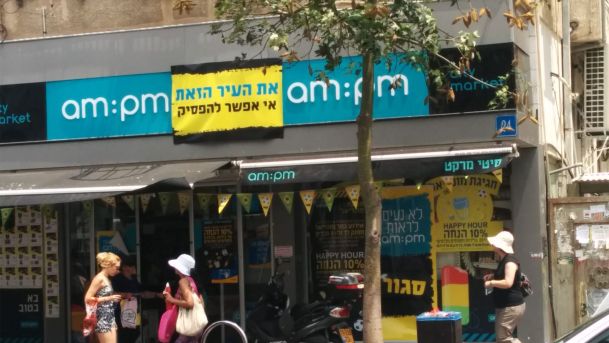The conclusions of the Jerusalem Status-Quo Committee, headed by attorney Yitzhak Meron, were published, stating that the Jerusalem Municipality must enforce the bylaws on opening businesses on Shabbos. The report was submitted to the heads of the chareidi and religious factions in the Knesset, former mayor of Jerusalem Nir Barkat and representatives of the city council from all the factions.
The committee was appointed to examine the state of Shabbos observance in Jerusalem, headed by senior jurist Yitzhak Meron, who did fieldwork with Jerusalem Municipality Director Amnon Merhav.
The examination led to unavoidable conclusions about the need for the Jerusalem Municipality to enforce municipal bylaws and to end chilul Shabbos without delay. Thus, the municipality’s position on a different enforcement policy was rejected.
It should be emphasized that following a long dispute over the business of the chilul Shabbos between a member of the city council on behalf of Agudas Yisrael, Yochanan Weizman, and the municipality attorney, Yitzhak Meron, sent an independent envoy to carry out a sample inspection of some of the businesses on which the dispute was being discussed.
The independent examination by attorney Meron in the field revealed unequivocal data: 8 out of 9 businesses examined were found open on Shabbos according to Weizmann, and not according to the municipality’s claim. This had significant impact on the conclusions of the report.
Following the struggle waged by the chareidi representatives of the Jerusalem Municipality and the establishment of attorney Meron’s investigation team, the municipality significantly reduced the chilul Shabbos in community administrations, the respective local ‘minhal ezrachi’.
The chareidi representatives of the Jerusalem Municipality also used public power and gave their support to the municipal budget, in that there would be no chilul Shabbos funded by the municipality.
The report reveals a bitter disagreement between Meron and Merhav, when the position of the shomrei Shabbos has been accepted in full by attorney Meron, that the municipality must comply with the law in its own language without excuses and establish an enforcement policy that conforms to the law, and to establish an enforcement policy that conforms to the law, while mentioning a precedent that obligates the Tel Aviv Municipality to enforce or change the bylaw.
In contrast to the position of former mayor Nir Barkat and the non-religious factions, Attorney Meron determines three main determinations regarding enforcing the bylaw:
1. In contrast to Adv. Merhav’s position, Adv. Meron asserts that the municipality must comply with the law in its letter and in its language and enforce all commerce in the city. Since in light of the time that has passed, it is necessary to enforce the law in full, without any delay and pertaining to all businesses.
2. There was a serious legal dispute over places that served drinks accompanied by playing music, if they were at all prohibited by law, as the traditionalists claimed. In the conclusions of the report, both Meron and Merhav agree that they are breaking the law.
3. Attorney Meron contends, contrary to the opinion of Merhav, that restaurants and cafes do not have a special permit to place tables and chairs in public space, this too must be enforced by the city.
An interesting legal point that attorney Meron expressed in the report, regarding the municipal activity on Shabbos “to the exclusion of shomrei Shabbos persons from municipal activities.” In this, argued attorney Meron, the municipality discriminates against persons who are shomer Shabbos.
The report is a comprehensive document that includes thirty pages. It was submitted on Wednesday, 11 Teves, and of course will be studied and elicit many reactions.
(YWN Israel Desk – Jerusalem)












One Response
Jerusalem is the ‘Holy City’, if some one wants stores open on Shabbos, let them go to some other place!